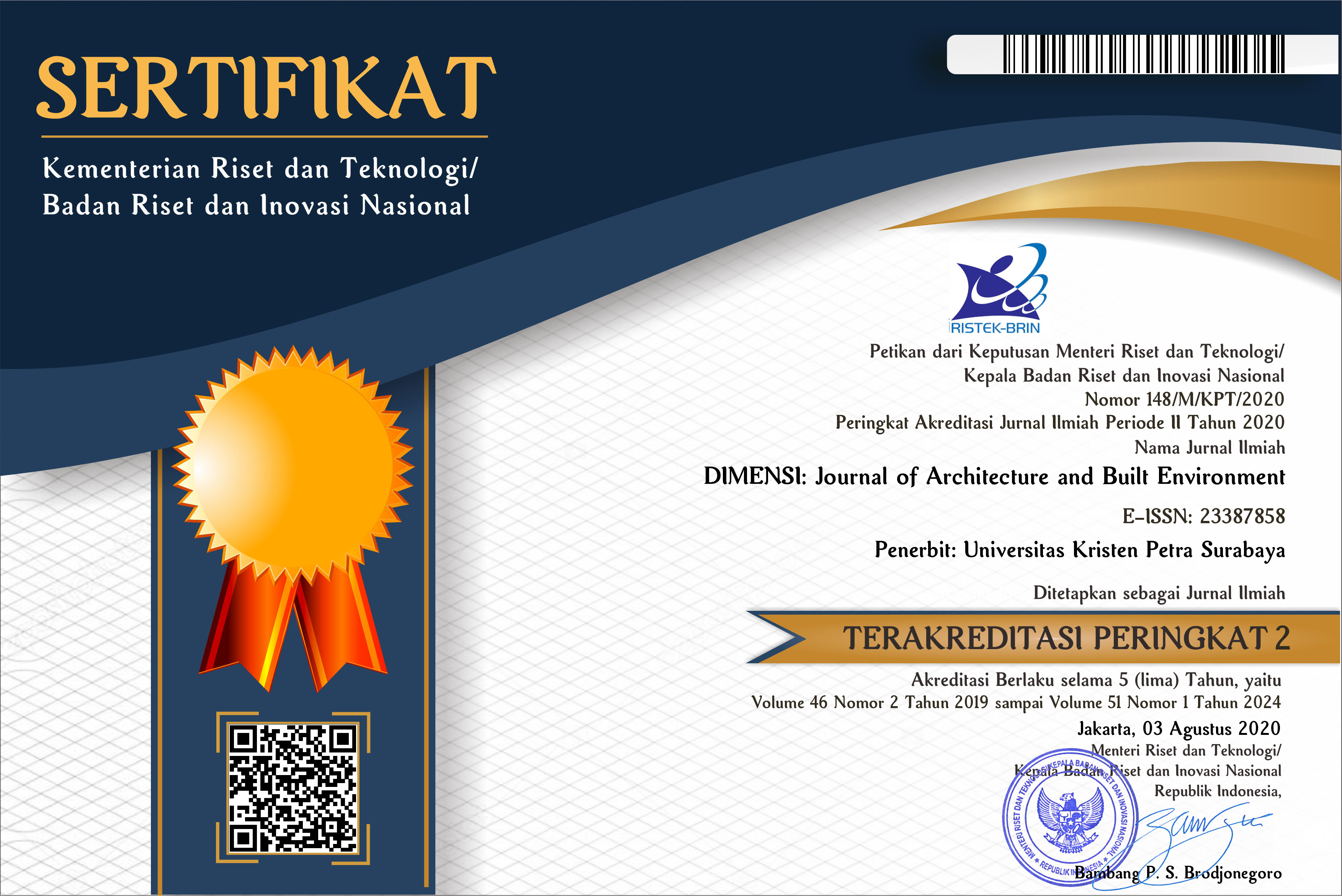THERMAL ADAPTATION, CAMPUS GREENING AND OUTDOOR USE IN LAUTECH CAMPUS, OGBOMOSO, NIGERIA
 :
:
https://doi.org/10.9744/dimensi.38.2.63-72
Keywords:
Trees, outdoor furniture, park, users, outdoor use.Abstract
The interwoven relationship between the use of indoors and outdoors in the tropics as means of thermal adaptation has long been recognized. In the case of outdoors, this is achieved by green intervention of shading trees as adaptive mechanisms through behavioural thermoregulation. Unfortunately, the indoor academic spaces of LAUTECH campus was not provided with necessary outdoor academic learning environment in the general site planning of the campus for use at peak indoor thermal dissatisfaction period considering the tropical climatic setting of the university. The students’ departmental and faculty associations tried to provide parks for themselves as alternatives which on casual observation are of substandard quality and poorly maintained because of lack of institutional coordination and low funding. This study examined the quality and use of these parks for thermal comfort through behavioral adjustment from subjective field evidence with the goal of improvement. To achieve this, twelve parks were selected within the campus. Questionnaires containing use and quality variables were administered randomly upon 160 users of these parks. The data obtained was subjected to descriptive statistical analysis. Results show that the quality of the parks, weather condition, period of the day, and personal psychological reasons of users has great influence on the use of the parks. The study concludes with policy recommendations on improvement of the quality of the parks and the campus outdoors and greenery in general.Downloads
Download data is not yet available.
Downloads
Published
2012-09-28
How to Cite
ADEDEJI, J. A., BELLO, Y. O., & FADAMIRO, J. A. (2012). THERMAL ADAPTATION, CAMPUS GREENING AND OUTDOOR USE IN LAUTECH CAMPUS, OGBOMOSO, NIGERIA. DIMENSI (Journal of Architecture and Built Environment), 38(2), 63-72. https://doi.org/10.9744/dimensi.38.2.63-72
Issue
Section
Articles
License
Authors who publish with this journal agree to the following terms:
- Authors retain copyright and grant the journal right of first publication with the work simultaneously licensed under a Creative Commons Attribution License that allows others to share the work with an acknowledgement of the work's authorship and initial publication in this journal.
- Authors are able to enter into separate, additional contractual arrangements for the non-exclusive distribution of the journal's published version of the work (e.g., post it to an institutional repository or publish it in a book), with an acknowledgement of its initial publication in this journal.
- Authors are permitted and encouraged to post their work online (e.g., in institutional repositories or on their website) prior to and during the submission process, as it can lead to productive exchanges, as well as earlier and greater citation of published work (See The Effect of Open Access).

















